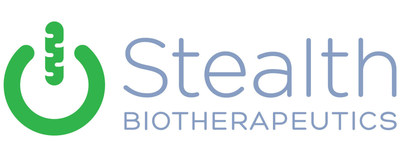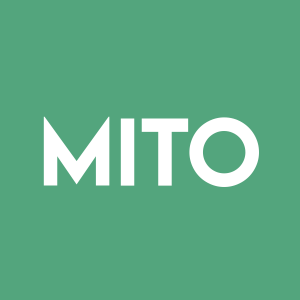Stealth BioTherapeutics Strengthens IP Portfolio with Issuance of U.S. Patents Covering Elamipretide for Barth Syndrome
Rhea-AI Summary
Stealth BioTherapeutics Corp (Nasdaq: MITO) announced the issuance of U.S. patents for its lead candidate, elamipretide, to treat Barth syndrome and related cardiomyopathy, effective until February 2034. The patents, granted on August 10, 2021, signify an expansion of Stealth's intellectual property. CEO Reenie McCarthy emphasized the commitment to developing elamipretide and looks forward to FDA evaluation of their recent NDA submission. Barth syndrome is a rare genetic condition with no approved therapies, affecting 1 in 200,000 to 400,000 individuals.
Positive
- Issuance of patents for elamipretide strengthens intellectual property portfolio.
- Potential market opportunity in treating Barth syndrome, a condition with no FDA-approved therapies.
Negative
- Dependence on FDA approval for the NDA submission presents significant regulatory risk.
- Market for elamipretide may be limited due to the ultra-rare nature of Barth syndrome.
News Market Reaction 1 Alert
On the day this news was published, MITO declined NaN%, reflecting a moderate negative market reaction.
Data tracked by StockTitan Argus on the day of publication.
BOSTON, Aug. 23, 2021 /PRNewswire/ -- Stealth BioTherapeutics Corp (Nasdaq: MITO), a clinical-stage biotechnology company focused on the discovery, development, and commercialization of novel therapies for diseases involving mitochondrial dysfunction, today announced that the United States Patent and Trademark Office has issued patents for Stealth's lead product candidate, elamipretide, in the U.S. covering the treatment of Barth syndrome and Barth syndrome-related cardiomyopathy until February 2034.
U.S. Patent Numbers 11,083,771 and 11,083,772, were granted on August 10, 2021, and include claims for the administration of elamipretide for treating Barth syndrome and Barth syndrome-related cardiomyopathy, respectively.
"This expansion of the breadth and depth of our intellectual property portfolio further demonstrates our commitment to developing elamipretide for the treatment of Barth syndrome," said Chief Executive Officer Reenie McCarthy. "We look forward to working with the FDA as it evaluates our August NDA submission. We are also excited about the potential of elamipretide to address unmet needs for patients living with other rare metabolic cardiomyopathies."
About Barth Syndrome
Barth syndrome is an ultra-rare genetic condition characterized by cardiac abnormalities often leading to heart failure and reduced life expectancy, recurrent infections, muscle weakness and delayed growth. Barth syndrome occurs almost exclusively in males and is estimated to affect one in 200,000 to 400,000 individuals worldwide. There are currently no FDA- or EMA-approved therapies for patients with Barth syndrome.
About Stealth
We are a clinical-stage biotechnology company focused on the discovery, development, and commercialization of novel therapies for diseases involving mitochondrial dysfunction. Mitochondria, found in nearly every cell in the body, are the body's main source of energy production and are critical for normal organ function. Dysfunctional mitochondria characterize a number of rare genetic diseases and are involved in many common age-related diseases, typically involving organ systems with high energy demands such as the heart, the eye, and the brain. We believe our lead product candidate, elamipretide, has the potential to treat both rare metabolic cardiomyopathies, such as Barth, Duchenne muscular dystrophy and Friedreich's ataxia, rare mitochondrial diseases entailing nuclear DNA mutations, as well as ophthalmic diseases entailing mitochondrial dysfunction, such as dry age-related macular degeneration and Leber's hereditary optic neuropathy. We are evaluating our second-generation clinical-stage candidate, SBT-272, and our new series of small molecules, SBT-550, for rare neurological disease indications following promising preclinical data. We have optimized our discovery platform to identify novel mitochondria-targeted compounds which may be nominated as therapeutic product candidates or utilized as mitochondria-targeted vectors to deliver other compounds to mitochondria.
Forward-Looking Statements
This press release contains forward-looking statements within the meaning of The Private Securities Litigation Reform Act of 1995. Such forward-looking statements include those regarding Stealth BioTherapeutics' expectations for its preclinical and clinical advancement of its drug development programs; its expectations regarding regulatory interactions; and the potential benefits of Stealth BioTherapeutics' product candidates. Statements that are not historical facts, including statements about Stealth BioTherapeutics' beliefs, plans and expectations, are forward-looking statements. The words "anticipate," "expect," "hope," "plan," "potential," "possible," "will," "believe," "estimate," "intend," "may," "predict," "project," "would" and similar expressions are intended to identify forward-looking statements, although not all forward-looking statements contain these identifying words. Stealth BioTherapeutics may not actually achieve the plans, intentions or expectations disclosed in these forward-looking statements, and you should not place undue reliance on these forward-looking statements. Actual results or events could differ materially from the plans, intentions and expectations disclosed in the forward-looking statements as a result of known and unknown risks, uncertainties and other important factors, including: Stealth BioTherapeutics' ability to obtain additional funding and to continue as a going concern; the impact of the COVID-19 pandemic; the ability to successfully demonstrate the efficacy and safety of Stealth BioTherapeutics' product candidates and future product candidates; the preclinical and clinical results for Stealth BioTherapeutics' product candidates, which may not support further development and marketing approval; the potential advantages of Stealth BioTherapeutics' product candidates; the content and timing of decisions made by the FDA, the EMA or other regulatory authorities, investigational review boards at clinical trial sites and publication review bodies, which may affect the initiation, timing and progress of preclinical studies and clinical trials of Stealth BioTherapeutics product candidates; the possibility that the FDA will not file the Barth NDA following the Company's submission of it; Stealth BioTherapeutics' ability to obtain and maintain requisite regulatory approvals and to enroll patients in its planned clinical trials; unplanned cash requirements and expenditures; competitive factors; Stealth BioTherapeutics' ability to obtain, maintain and enforce patent and other intellectual property protection for any product candidates it is developing; and general economic and market conditions. These and other risks are described in greater detail under the caption "Risk Factors" included in the Stealth BioTherapeutics' most recent Annual Report on Form 20-F filed with the Securities and Exchange Commission ("SEC"), as well as in any future filings with the SEC. Forward-looking statements represent management's current expectations and are inherently uncertain. Except as required by law, Stealth BioTherapeutics does not undertake any obligation to update forward-looking statements made by us to reflect subsequent events or circumstances.
Investor Relations
Stern Investor Relations
Janhavi Mohite, 212-362-1200
IR@StealthBT.com
![]() View original content to download multimedia:https://www.prnewswire.com/news-releases/stealth-biotherapeutics-strengthens-ip-portfolio-with-issuance-of-us-patents-covering-elamipretide-for-barth-syndrome-301360285.html
View original content to download multimedia:https://www.prnewswire.com/news-releases/stealth-biotherapeutics-strengthens-ip-portfolio-with-issuance-of-us-patents-covering-elamipretide-for-barth-syndrome-301360285.html
SOURCE Stealth BioTherapeutics Inc.








